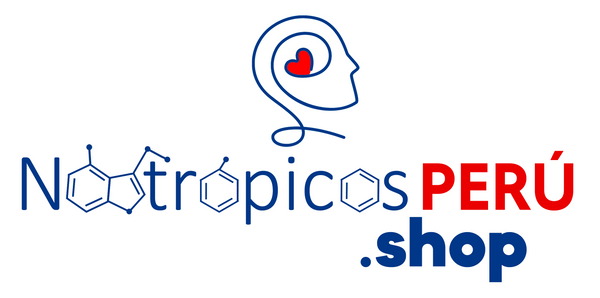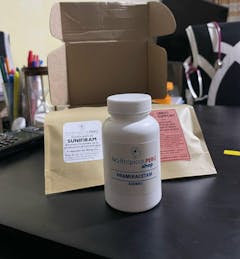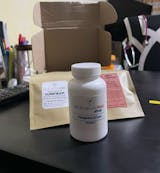Muy confiable, llega a tiempo y siempre están respondiendo cualquier duda, este producto me ayudó bastante a controlar mis emociones e impulsos que solía tener. Muy buen producto
Es la segunda compra que hago en esta página (hasta me enviaron muestras gratis de otros nootropicos) y ya llevo tomándolo unos días, pude estudiar muchas horas y se nota su efecto sobre todo en la concentración, en ese "foco" que por cierto dura entre 6-8 horas aprox., no es tan estimulante, me siento más en calma, eficiente y sobre todo enfocado. Definitivamente debe de ser el más potente en lo que respecta en memoria en general y a largo plazo. Gracias por traer estos compuestos a nuestro país y por las muestras gratis!
En las lista de ingredientes no dice selenio, pero la web informa que sí. Espero que no sea una estafa
Desde el primer mes de uso, mejoró sustancialmente la capacidad de concentración y comportamiento de mi madre. Luego de tres meses, se logran percibir algunas mejoras en su memoria, de una forma mucho más leve y sutil. Estos resultados se evidenciaron luego de tomar tres cápsulas todos los días en ayunas, de manera sostenida en el tiempo. A ella le encanta y es consciente que le representa mejoría en su día a día.
Los componentes de la fórmula son correctos y, sin duda, le han generado mejores resultados que todos los medicamentos tradicionales juntos, con el agregado que no generan efectos secundarios.
Nos han recomendado potenciar la fórmula con Dihexa y seguramente lo hagamos a partir del próximo mes.
También es importante, en la medida de las posibilidades, complementar la desinflamación con reducción de azúcares, gluten, lácteos, aceites vegetales y ultra procesados.
Recomendado.
El producto es bastante efectivo. Estimula el sueño y lo sostiene adecuadamente. Los componentes son correctos para ese fin. Es muy positivo que no contenga melatonina.
Es importante encontrar la dosis adecuada para cada organismo. Ir probando la fórmula día a día, empezando con la dosis más baja. Una vez que se encuentra la dosis adecuada, los efectos son muy beneficiosos para mejorar sustancialmente la calidad del sueño, sin efectos adversos al día siguiente.




























































